Rat Control of Fort Wayne
Welcome to Rat Control of Fort Wayne! We are Indiana rodent control specialists. Our specialty is rat and mouse control. Our special 32-point process is the single most effective method in the country for permanently solving rodent problems inside houses and buildings. We are not a typical pest control Fort Wayne rodent exterminator company that treats rodents in a similar way to insects, with repeated monthly or quarterly poison treatments. That's a never-ending process. We solve the problem ONCE, and PERMANENTLY, by thoroughly inspecting every component of your building and completely sealing shut all access points, to 100% rodent-proof your house. We physically trap and remove all rats or mice, a process that is completely effective once all access has been closed. The problem is soved forever, usually in a week or less. Click on our Fort Wayne Prices page to find out more about our prices for rat control work. Or give us a call any time to schedule an appointment, usually within the next day. We look forward to hearing from you.
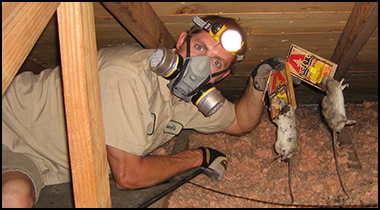
Fort Wayne Rat Trapping

Rodent-Proofing Repairs
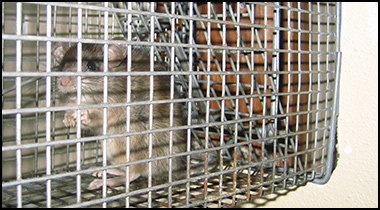
Humane Exclusion Options
Call 24/7 to discuss your rat problem.
Same-day or next-day appointments: 260-212-1280
32-point inspection of your property.
Written estimates for rat project.
Fully Indiana licensed and insured.
Rat-proofing repairs with steel.
100% of rodents trapped and removed.
Chewed wire and damage repair services.
Rat dropping cleanup and sanitation services.
Poison-free rodent control methods.
Our Service Range - 260-212-1280
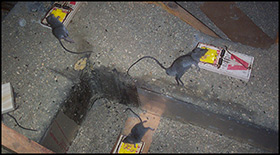
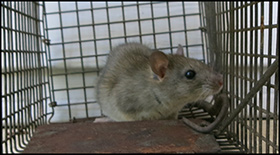
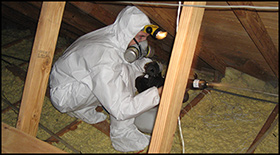
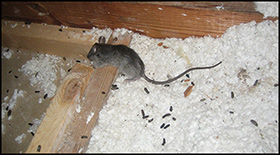
Have you ever wondered about how rats are handled by wildlife rehabbers? Many people don't think about it, but it is an issue they encounter. Wildlife rehabbers have many options, depending on their preference and abilities.
Before we get into that part of it, it is important to note that rats are considered nuisance rodents. Some people do keep them as pets, but it is not recommended.
The main purpose of wildlife rehabilitation is to care for young, sick and injured animals. The goal is to get them healthy and release them into their natural habitat. There are some rehabbers that will do this with rats. However, there are not very many. Since rats carry infectious diseases, they require special care to ensure that they are not carrying viral infections. Yes, rats are living creatures and may have certain fundamental rights. However, they are also one of the only living organisms that can survive a nuclear war. There is no risk of eradicating the species.
Rather than rehabilitating and reintroducing rats into the wild, some rehabbers choose to humanely euthanize them. Rats are typically euthanized in a carbon dioxide chamber or they are quick frozen. It is an immediate and painless process that prevents them from suffering.
Feed and Testing
Some wildlife rehabilitators do choose to breed rats. As such, they can make a little money for their troubles. Take not, however, you typically don't encounter wealthy wildlife rehabbers so there isn't much money in it. What little is made is usually syphoned back in to pay for the care of other animals.
Anyway, multiple companies still perform testing on laboratory rats. Foods, cosmetics and medications all require this type of testing. It is becoming less common now, but it still happens regularly. Some wildlife rehabilitators choose to breed rats and sell them to laboratory facilities for testing.
Other rehabbers sell them to zoos, conservatories and pet shops for food. Rats are commonly fed to snakes, reptiles, birds and amphibians. This would be their normal food in the wild, so it is a natural progression. Of course, the rats are tested and sometimes immunized first to ensure they are not carrying transmittable diseases that could harm the predators.
Finding Rats in Your Home
In many states it is illegal to keep wildlife for more than forty-eight hours without a special permit or license. Although they are considered nuisance rodents, rats are still wildlife. If you have trapped a live rat, you need to call an expert. If there are young, then you can call a wildlife rehabber who may take them off your hands. Otherwise your choices are limited to experts who have experience dealing with and eradicating rats.

